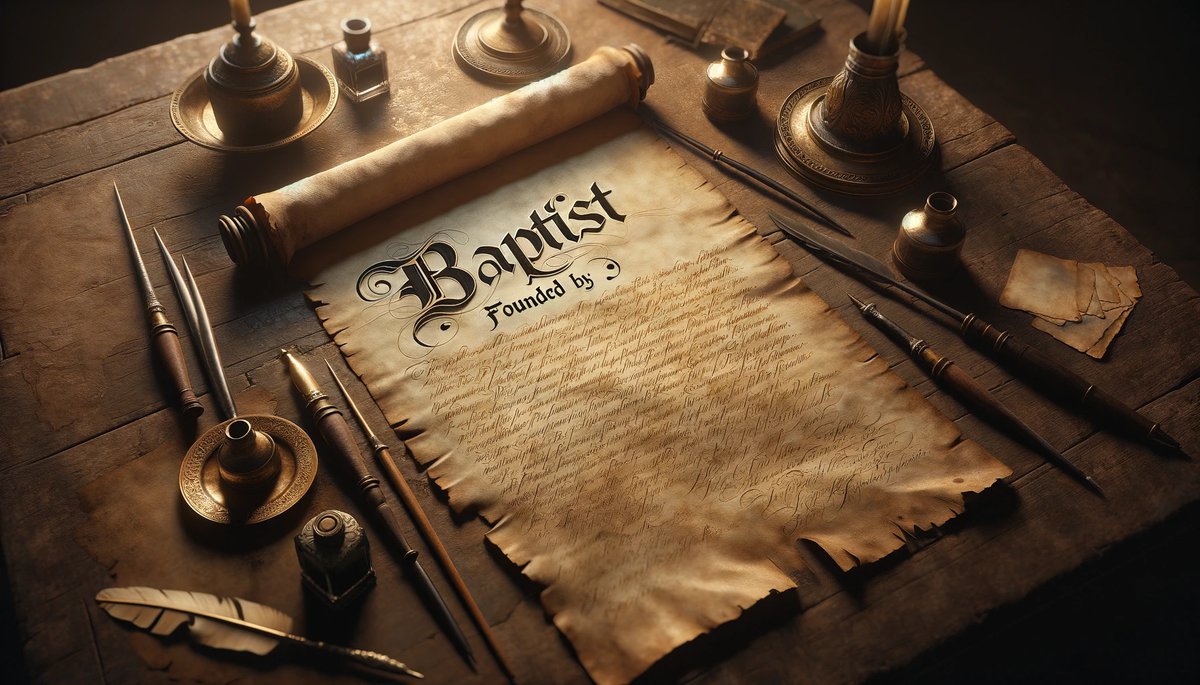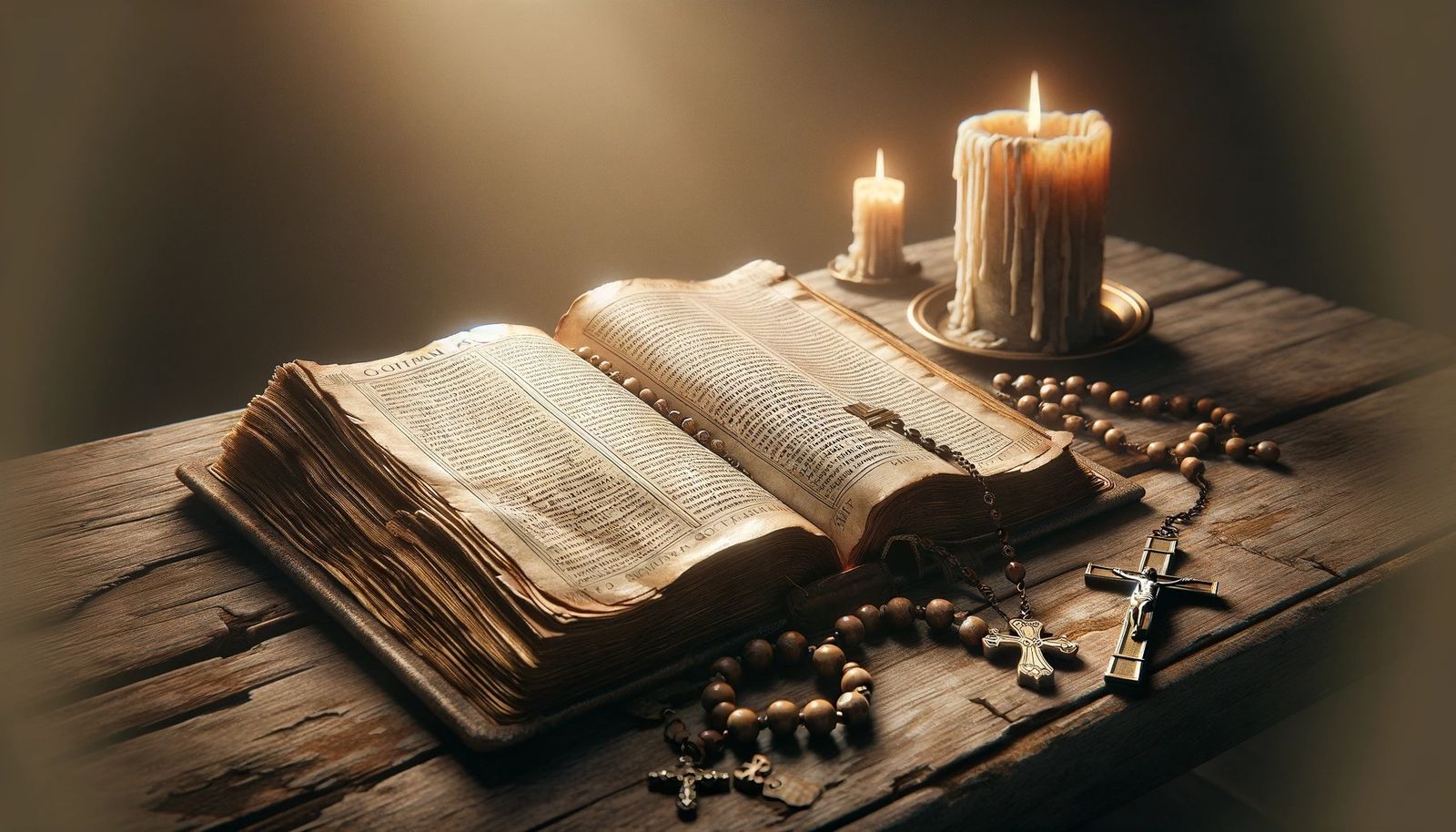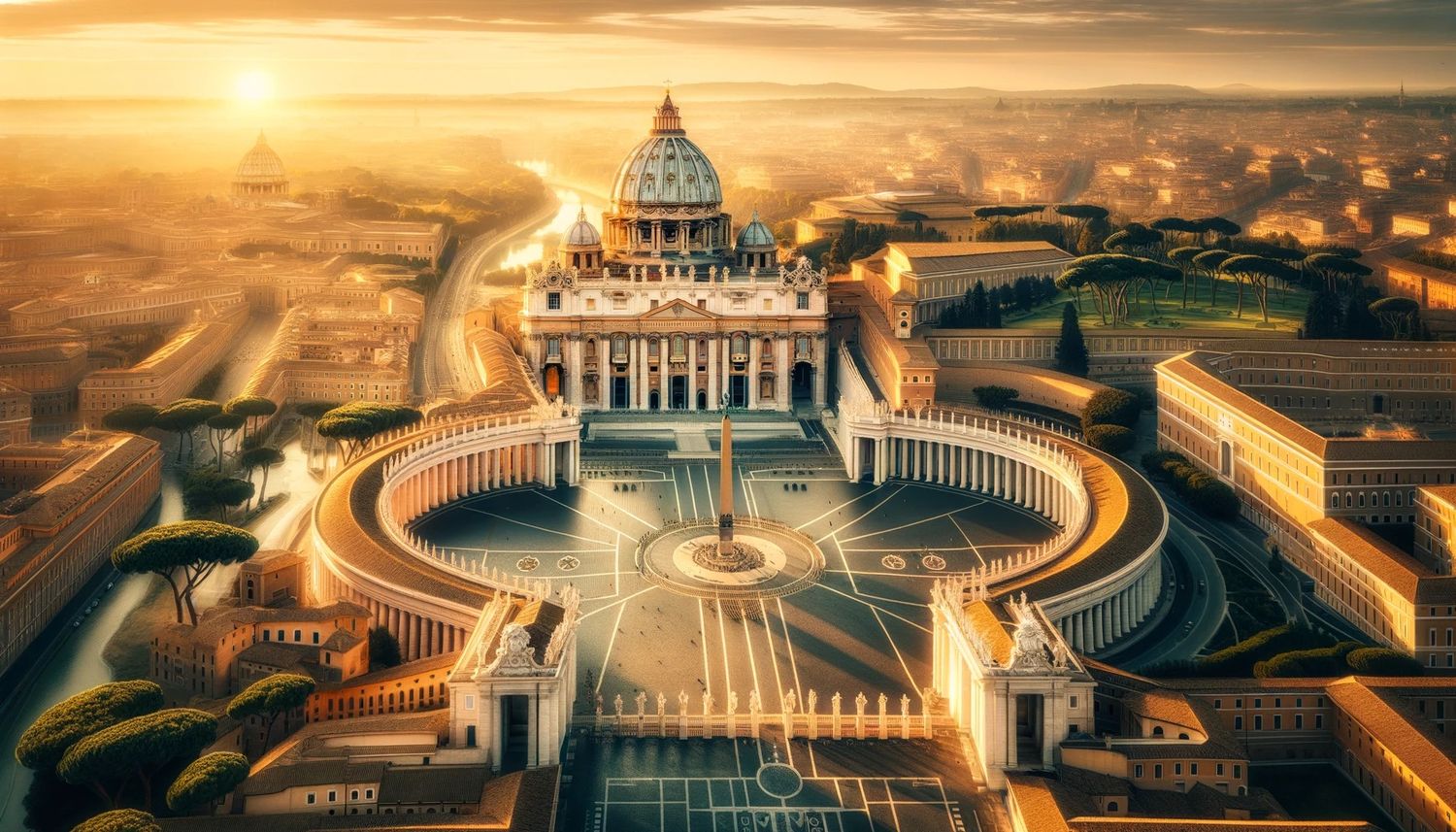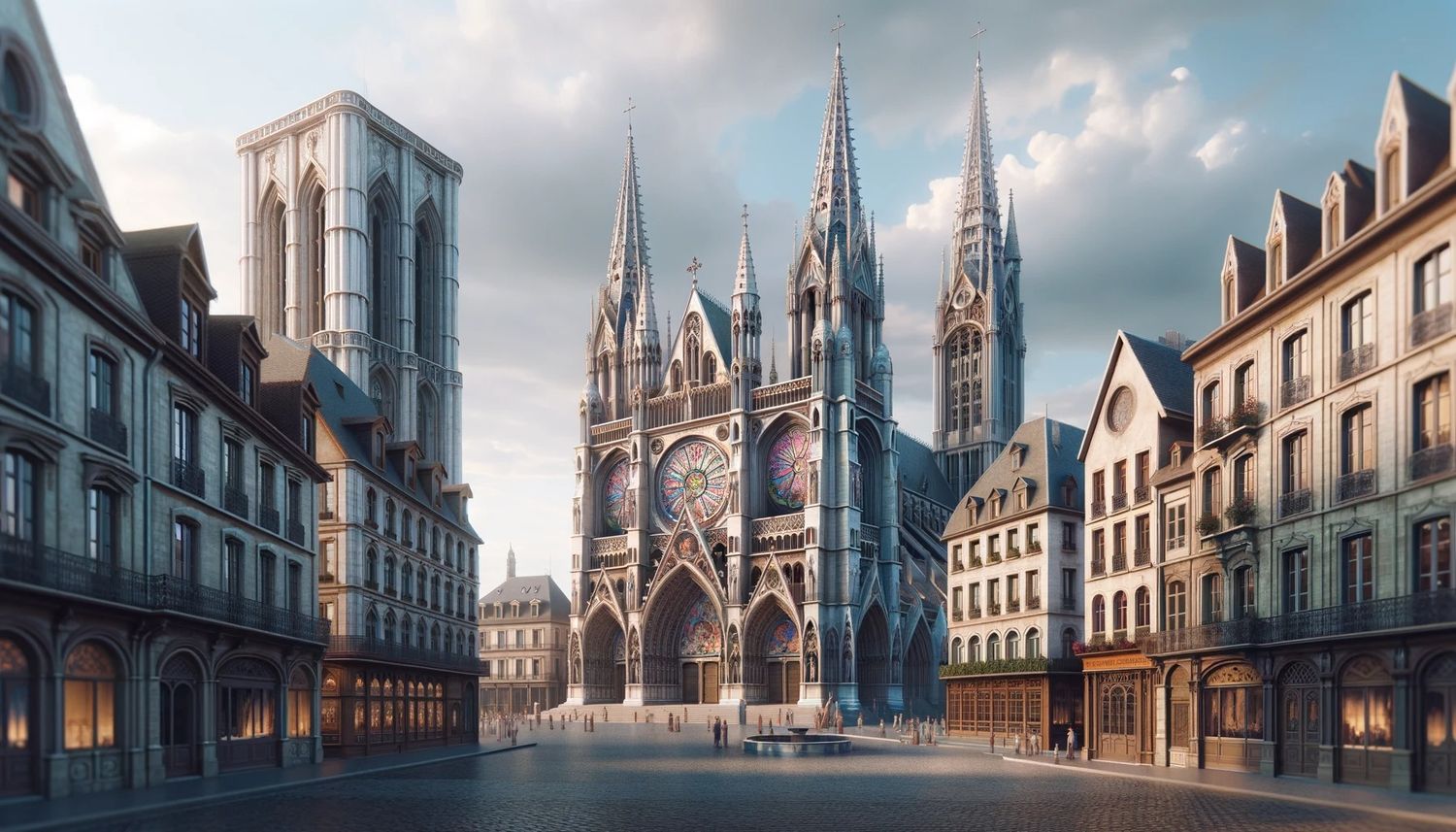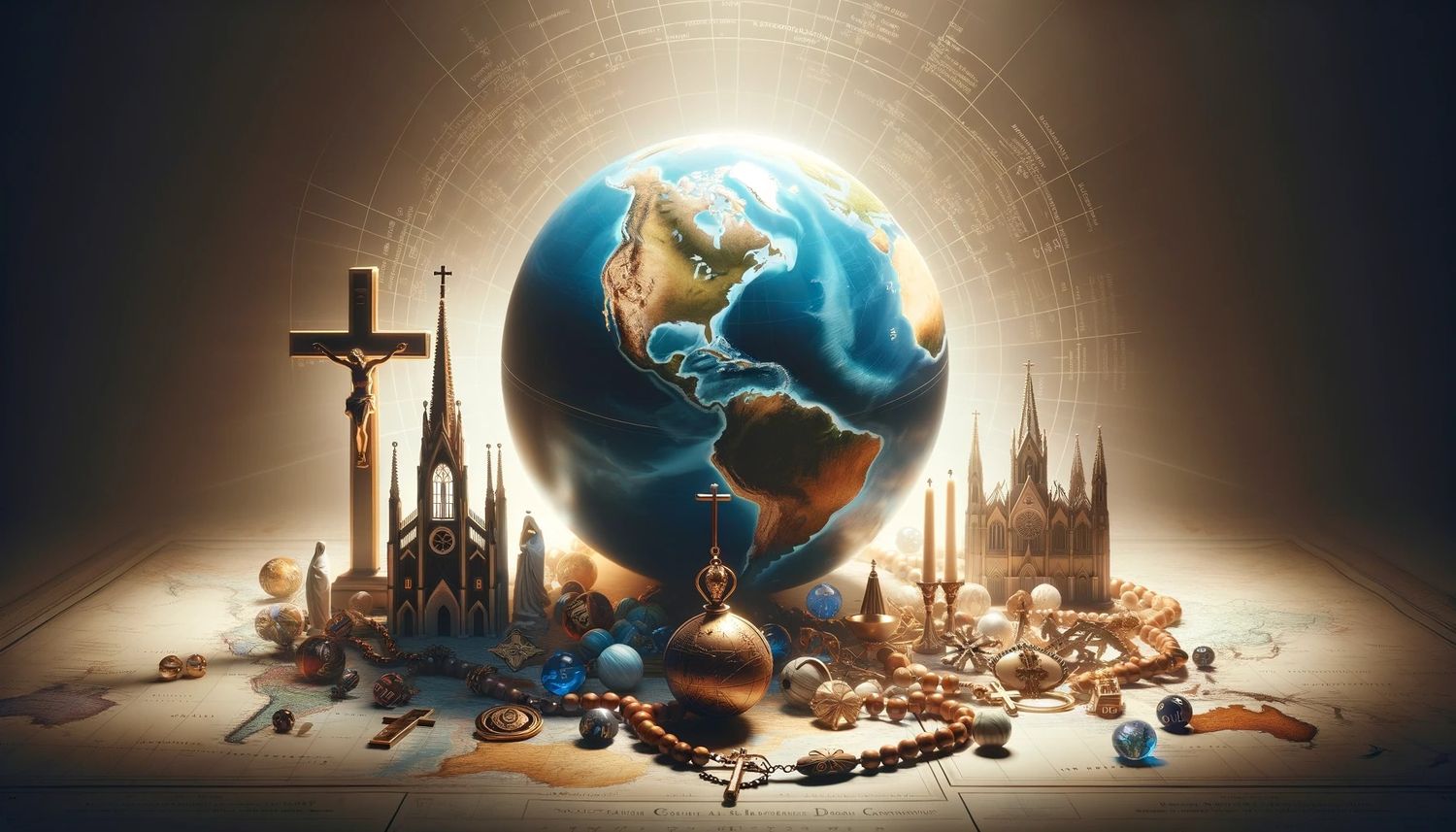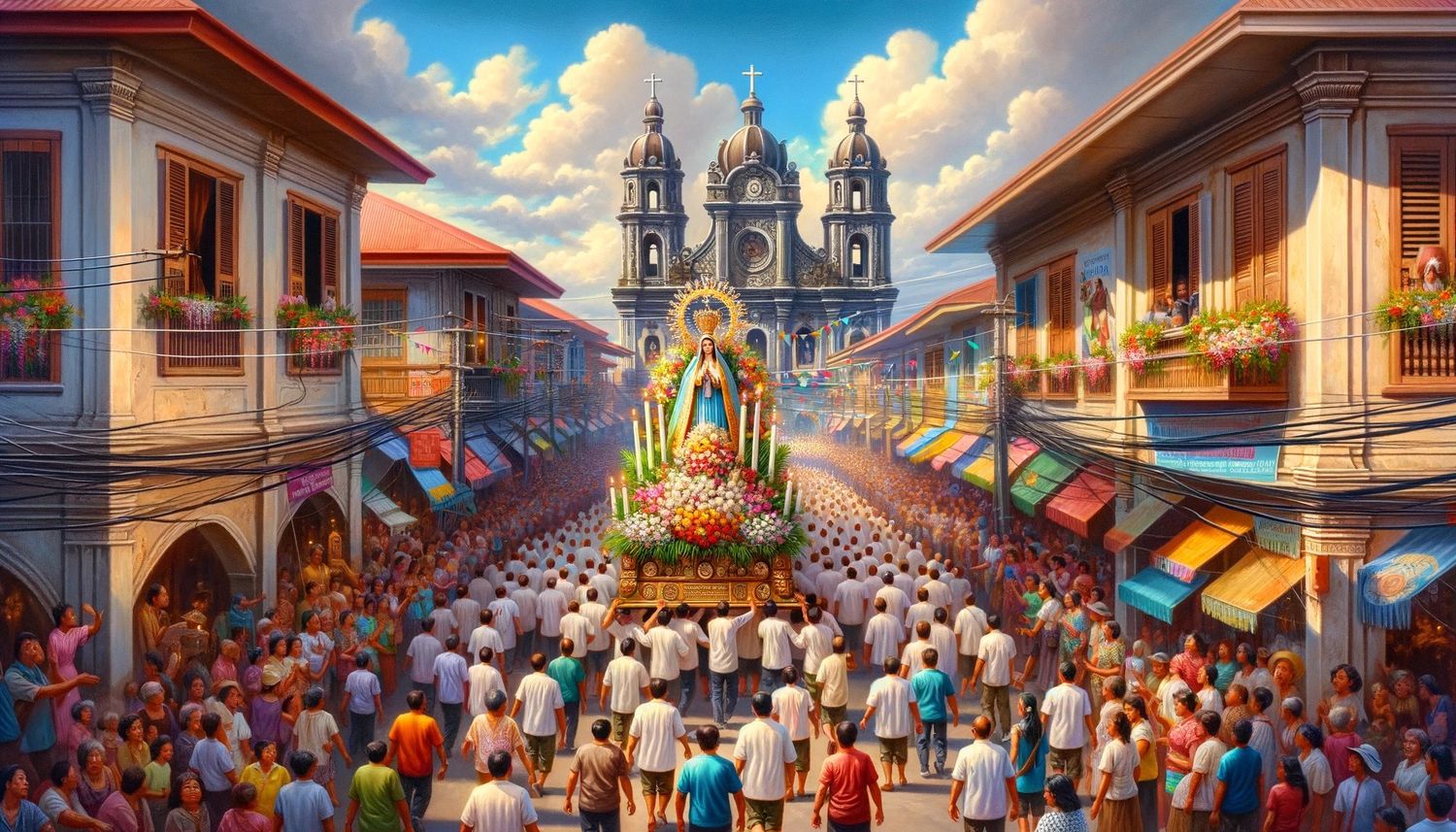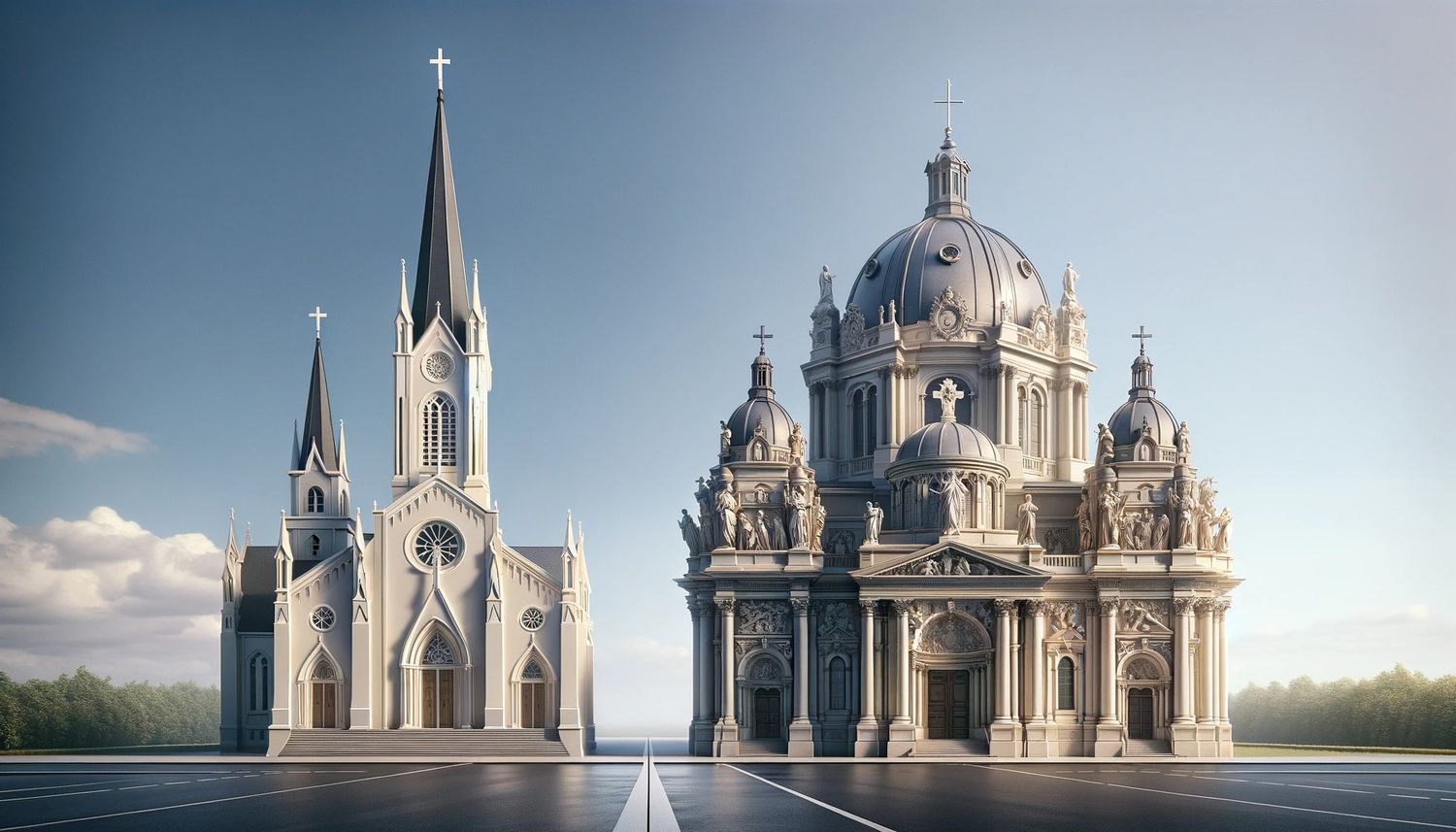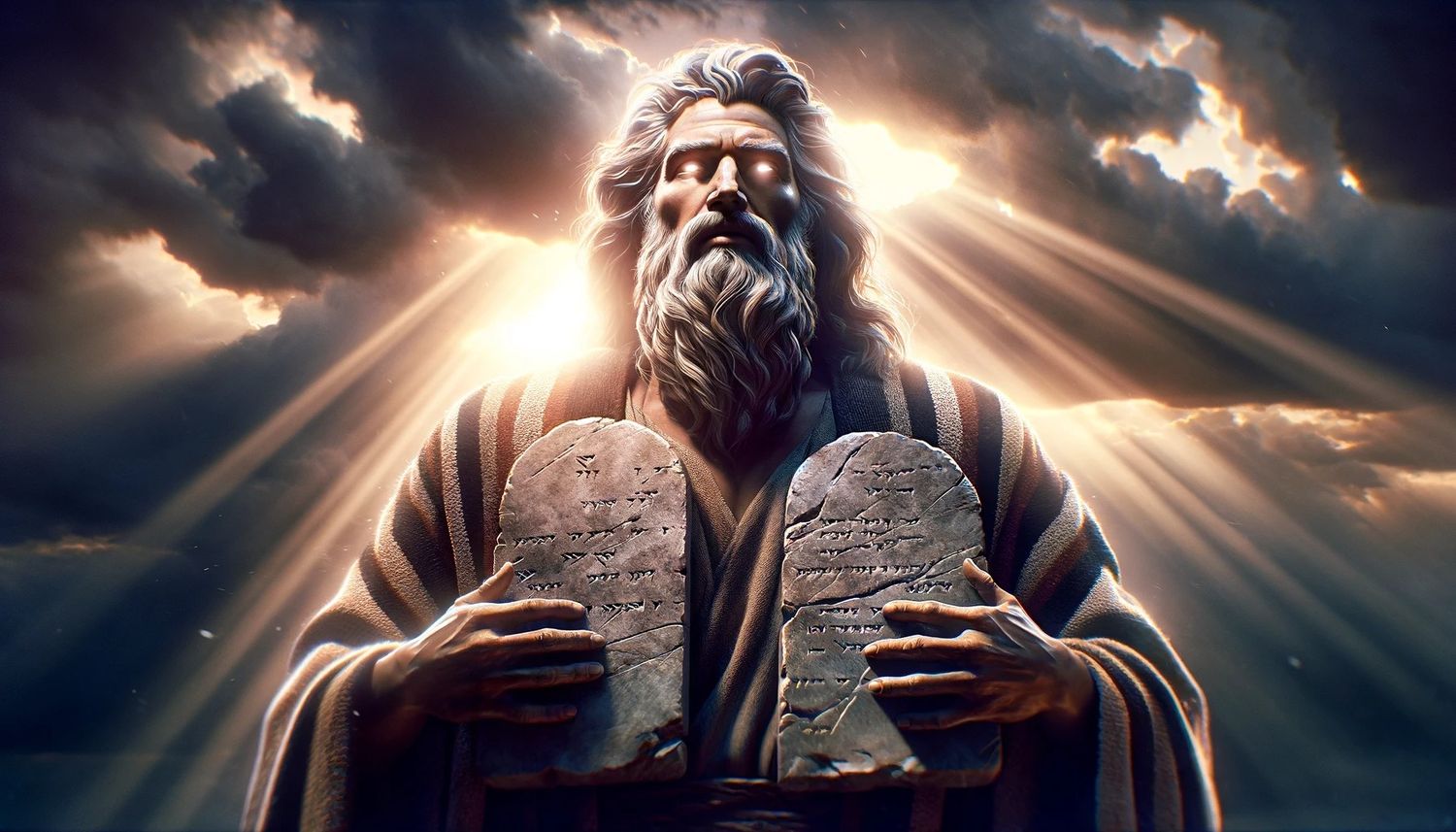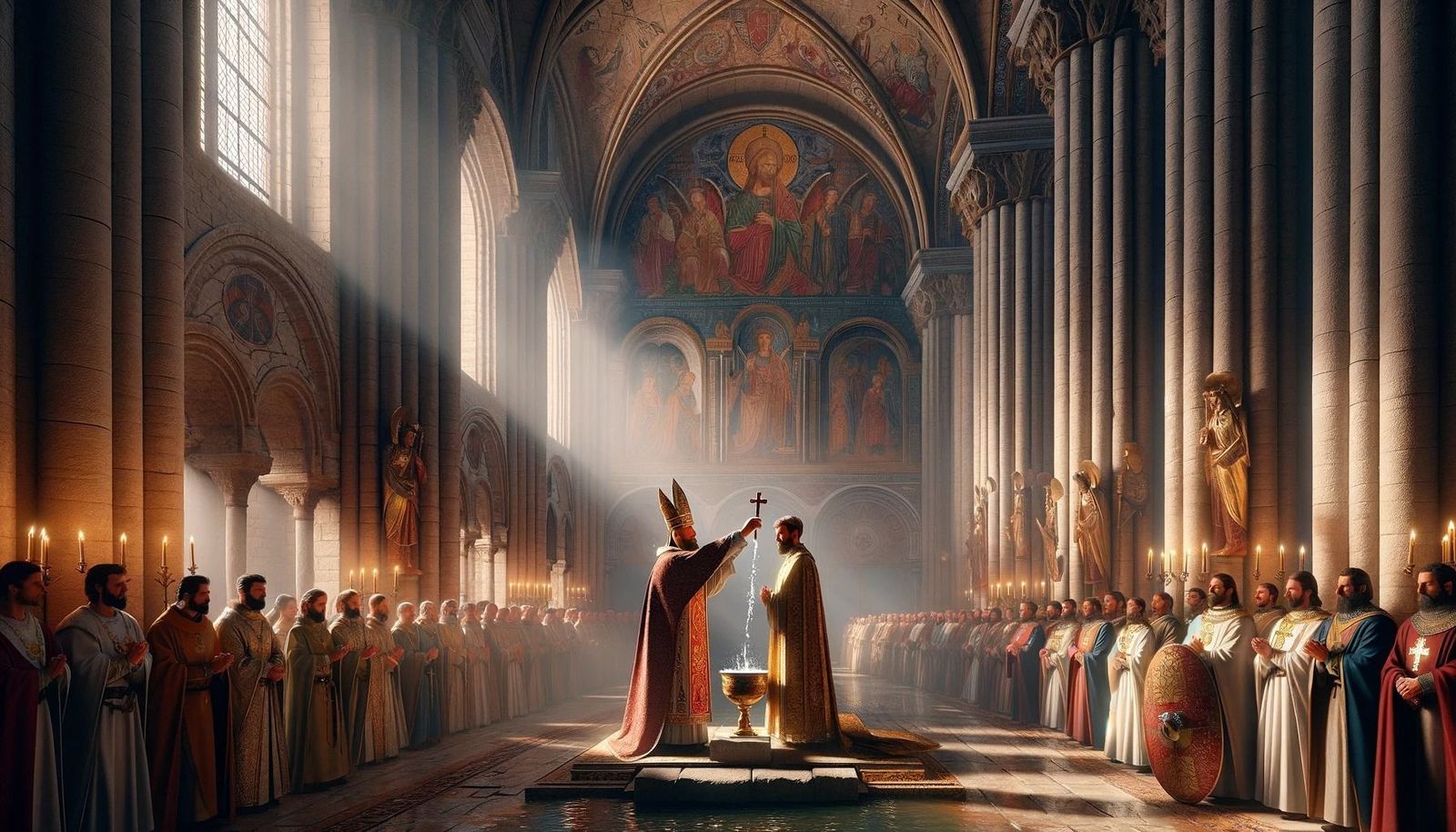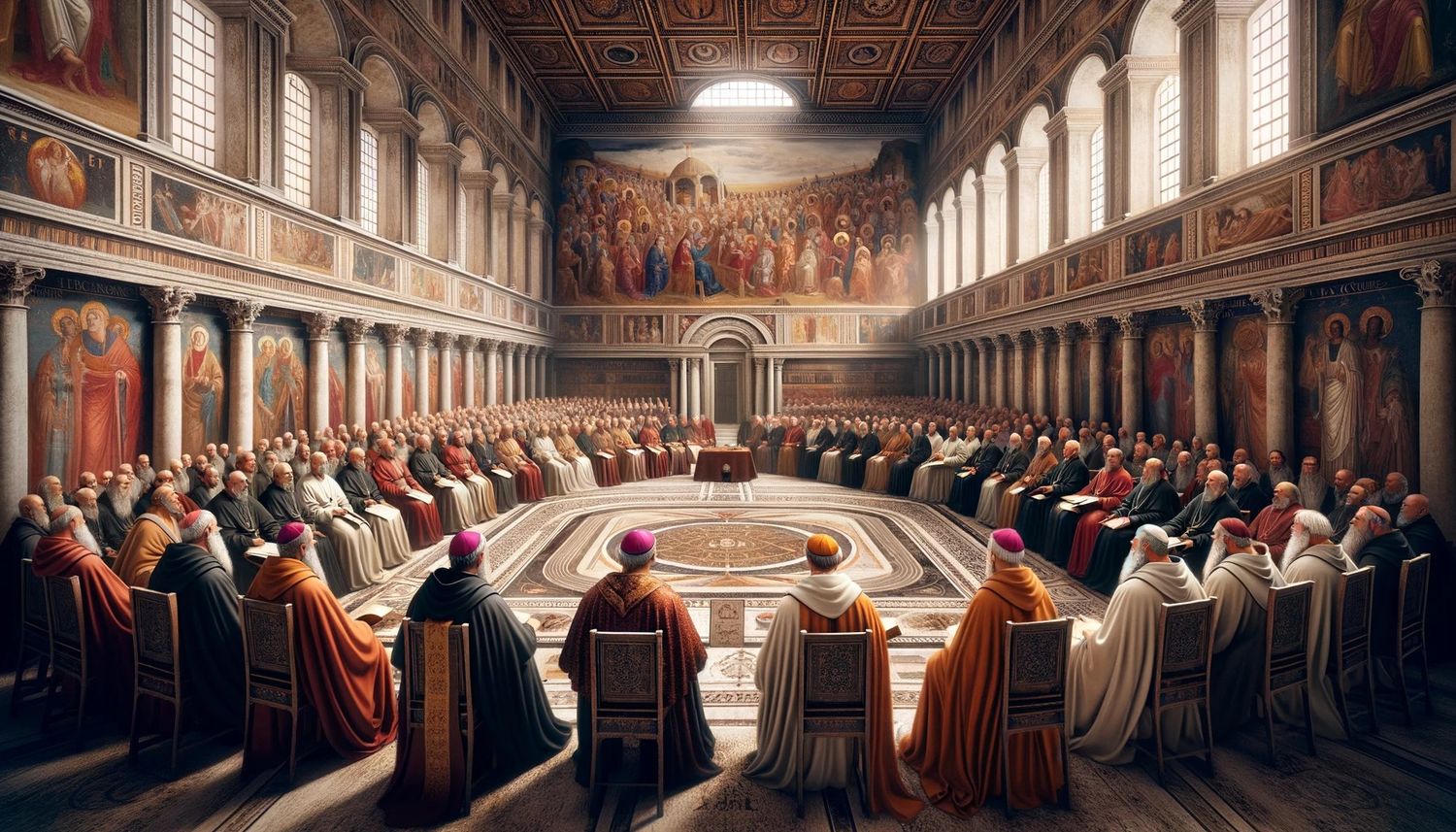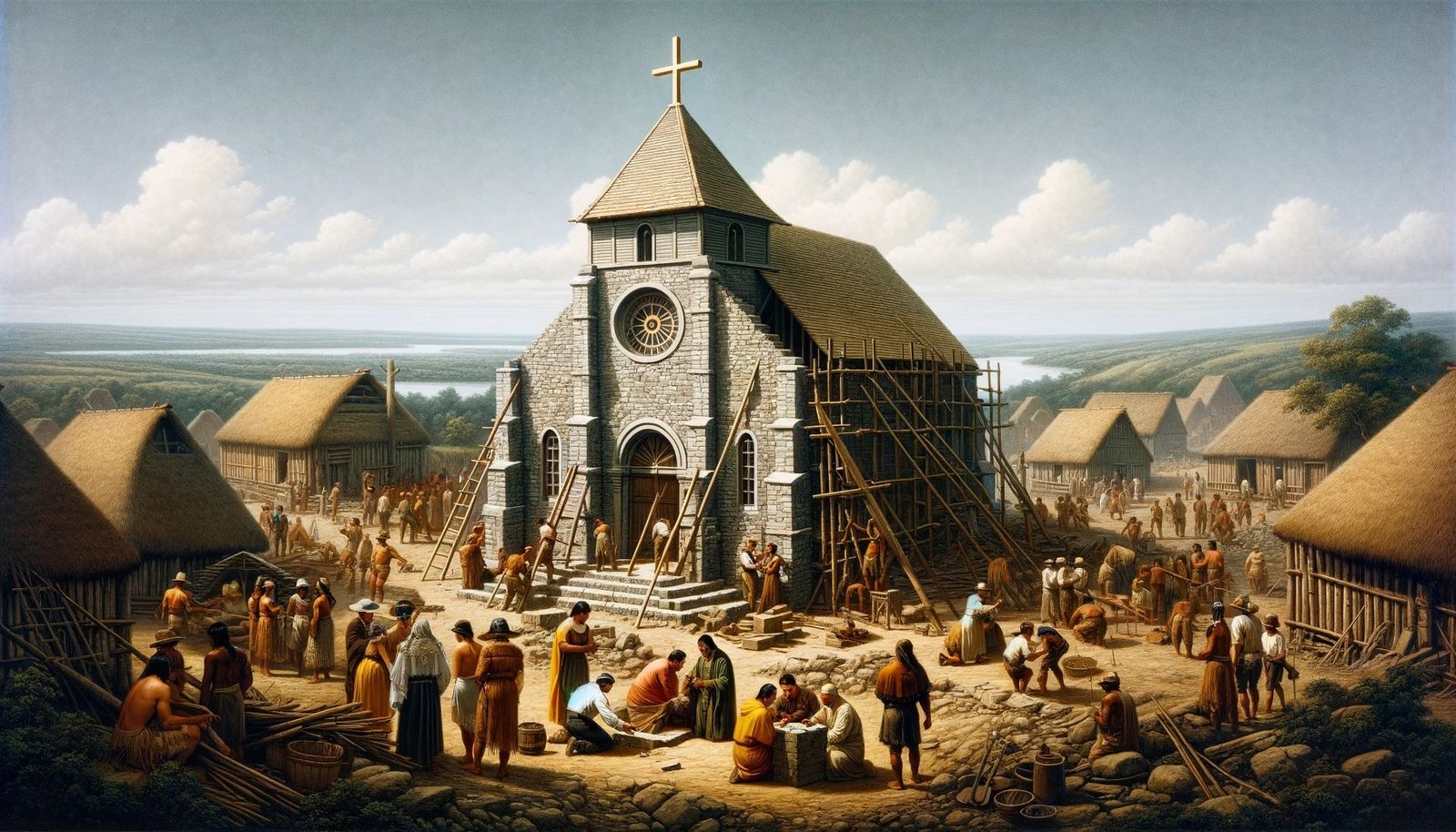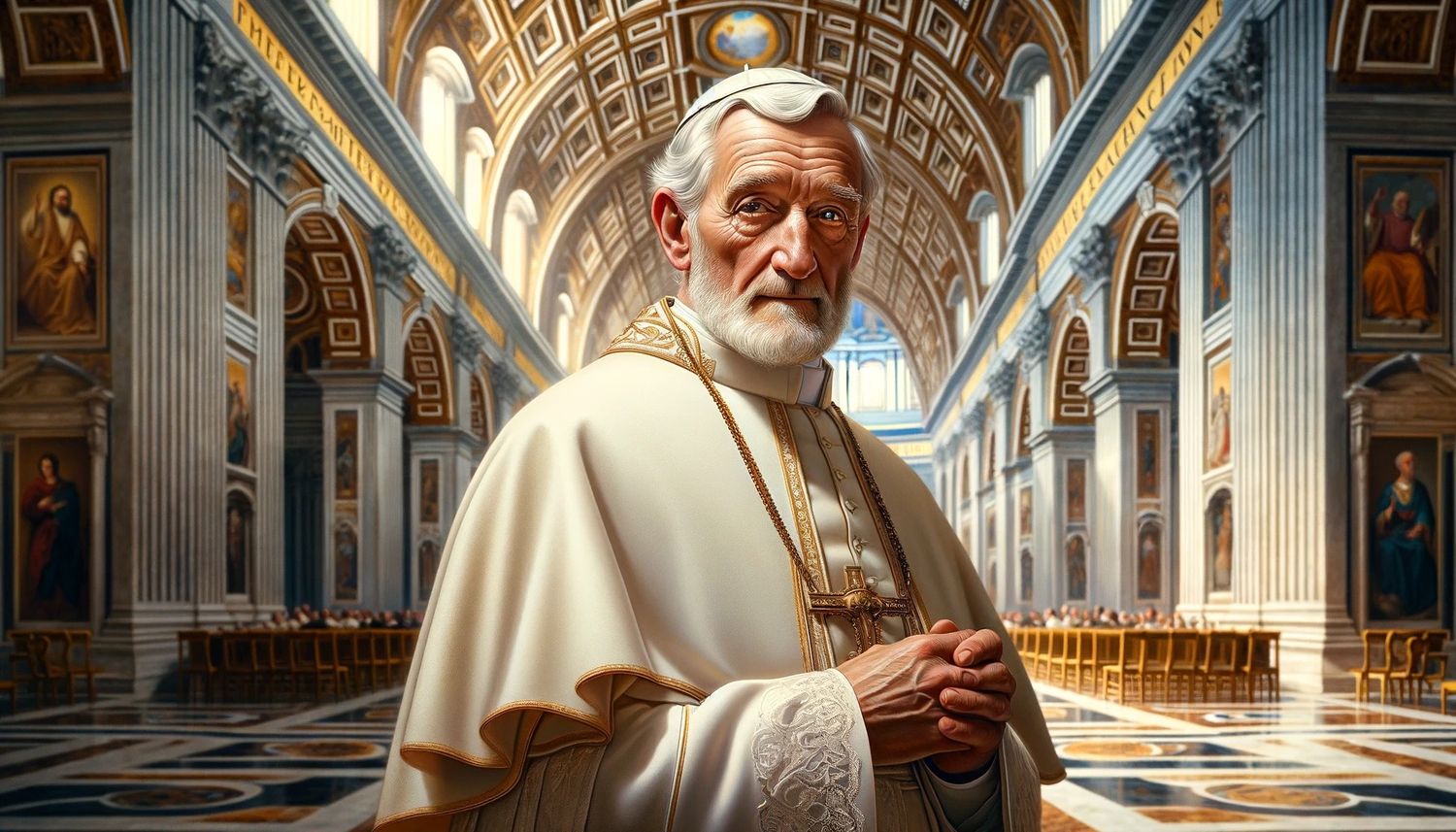Home>Theology and Spirituality>Who Founded Roman Catholicism?
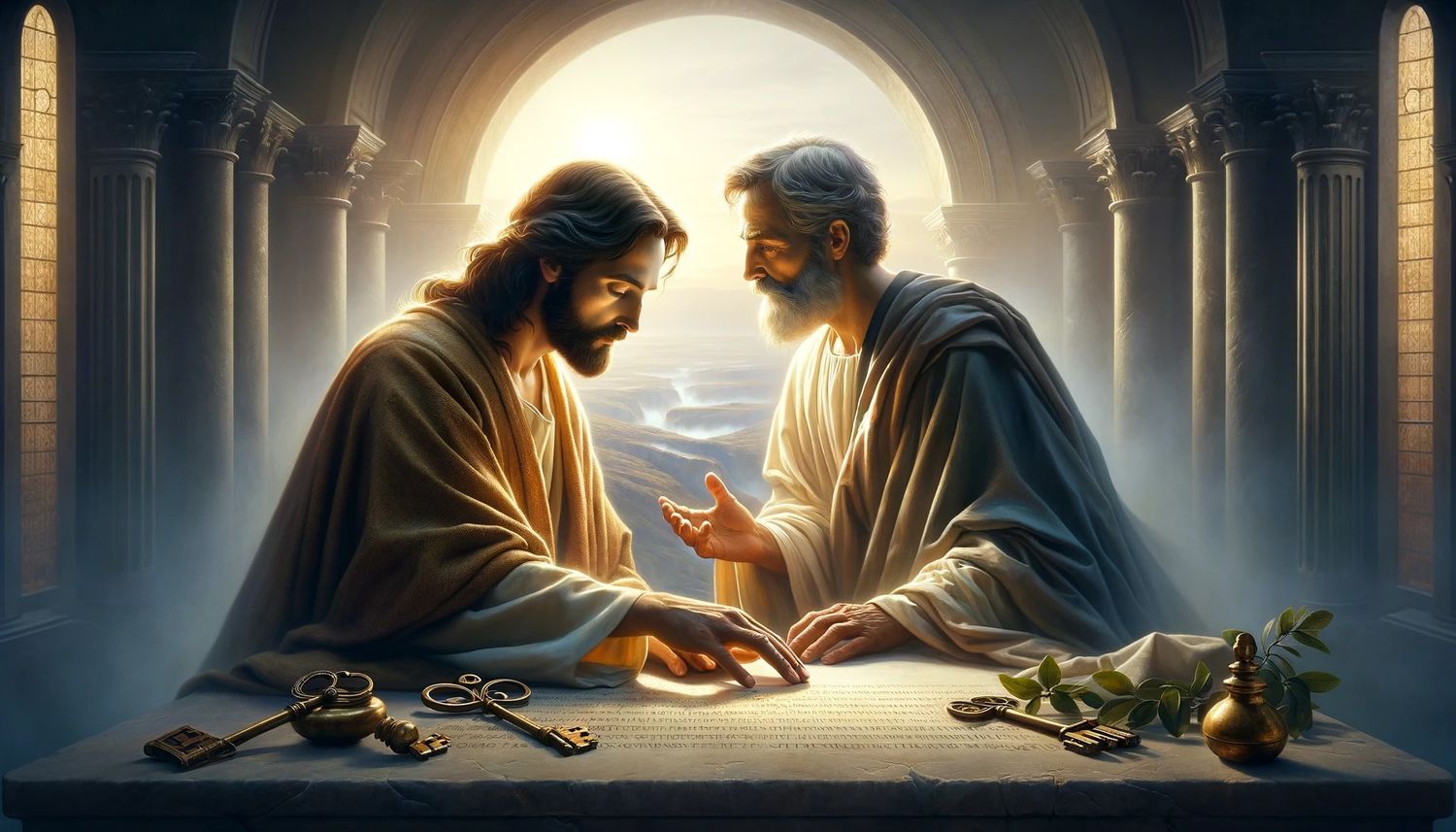

Theology and Spirituality
Who Founded Roman Catholicism?
Published: February 18, 2024
Peter Smith, Editorial Director at Christian.net, combines deep insights into faith, politics, and culture to lead content creation that resonates widely. Awarded for his contributions to religious discourse, he previously headed a major organization for religious communicators, enhancing dialogue on faith's societal impacts.
Discover the origins of Roman Catholicism and its founder in this insightful exploration of theology and spirituality. Uncover the history and significance of this influential religious institution.
(Many of the links in this article redirect to a specific reviewed product. Your purchase of these products through affiliate links helps to generate commission for Christian.net, at no extra cost. Learn more)
Table of Contents
Introduction
Roman Catholicism, one of the oldest and most influential branches of Christianity, has a rich and complex history that spans over two millennia. Its origins can be traced back to the life and teachings of Jesus Christ, and its development has been shaped by the contributions of numerous theologians, leaders, and scholars throughout the centuries. Understanding the founding of Roman Catholicism requires delving into the early history of Christianity, the pivotal events that led to the establishment of the Church, and the key figures who played instrumental roles in its formation.
As we explore the founding of Roman Catholicism, it is essential to consider the socio-political landscape of the time, the theological debates that shaped Christian doctrine, and the enduring impact of the early Christian communities. By examining these foundational elements, we can gain a deeper appreciation for the origins of Roman Catholicism and the enduring legacy of its founders.
Read more: Who Restored England To Roman Catholicism?
Early History of Roman Catholicism
The early history of Roman Catholicism is intricately intertwined with the emergence and spread of Christianity in the ancient world. Following the crucifixion and resurrection of Jesus Christ in the 1st century AD, a community of believers, inspired by his teachings and miracles, began to form. These early Christians, led by the apostles and disciples of Jesus, laid the foundation for what would later become the Catholic Church.
During the first few centuries, Christianity faced persecution from the Roman authorities, yet it continued to gain followers across the Roman Empire. The catacombs beneath the city of Rome served as clandestine places of worship and burial for these early Christians, reflecting the clandestine nature of their faith during this period.
In the 4th century, the Roman Emperor Constantine's conversion to Christianity marked a significant turning point for the religion. His Edict of Milan in 313 AD granted Christians the freedom to practice their faith openly, effectively ending the era of persecution. This newfound religious tolerance allowed the Christian community to flourish and expand, leading to the construction of grand basilicas and the establishment of Christianity as a state religion.
The Council of Nicaea in 325 AD, convened by Constantine, played a pivotal role in shaping Christian doctrine and establishing a unified understanding of the faith. This ecumenical council addressed theological controversies, including the nature of the Holy Trinity, and formulated the Nicene Creed, a statement of faith that remains central to Catholicism to this day.
As the influence of Christianity grew, the Bishop of Rome, later known as the Pope, emerged as a prominent figure within the Church hierarchy. The primacy of the Bishop of Rome, based on the belief in the apostolic succession from the Apostle Peter, laid the groundwork for the papal authority that would characterize Roman Catholicism in the centuries to come.
The early history of Roman Catholicism is marked by a dynamic interplay of religious fervor, political developments, and theological debates. The enduring legacy of this formative period continues to shape the beliefs, practices, and traditions of the Catholic Church, serving as a testament to the enduring impact of its early history.
Founding of Roman Catholicism
The founding of Roman Catholicism can be traced to the early centuries of Christianity, characterized by the gradual evolution of the Church's organizational structure, doctrinal formulation, and the establishment of key theological principles. The term "Catholic" itself, derived from the Greek word "katholikos," meaning "universal," reflects the Church's aspiration to encompass all believers under its doctrinal umbrella.
One of the pivotal moments in the founding of Roman Catholicism was the recognition of the Bishop of Rome, also known as the Pope, as the preeminent authority within the Church. This recognition, rooted in the belief in the apostolic succession from the Apostle Peter, laid the groundwork for the papal primacy that would come to define Roman Catholicism. The consolidation of the papal authority, coupled with the development of the hierarchical structure of the Church, contributed to the distinct identity of Roman Catholicism within the broader Christian tradition.
The formulation of key doctrinal tenets, such as the belief in the Holy Trinity, the divinity of Jesus Christ, and the authority of the Scriptures, played a crucial role in shaping the theological foundation of Roman Catholicism. The early ecumenical councils, including the Council of Nicaea and the Council of Chalcedon, were instrumental in addressing theological controversies and establishing orthodox Christian beliefs that would be central to Catholic doctrine.
The sacramental system, encompassing rituals such as baptism, the Eucharist, and penance, became integral to the spiritual life of the Catholic faithful. These sacraments, viewed as outward signs of inward grace, served to deepen the spiritual connection between the individual believer and the divine, fostering a sense of communal worship and spiritual nourishment within the Church.
The establishment of monastic orders, such as the Benedictines and the Franciscans, contributed to the spiritual vitality and missionary zeal of Roman Catholicism. These religious communities, characterized by their commitment to prayer, contemplation, and service, played a significant role in advancing the Church's influence and promoting its teachings across diverse regions.
The founding of Roman Catholicism represents a confluence of historical, theological, and ecclesiastical developments that have left an indelible mark on the religious landscape. The enduring legacy of its founding principles continues to shape the beliefs, practices, and cultural impact of the Catholic Church, serving as a testament to the enduring influence of its formative years.
Key Figures in the Founding of Roman Catholicism
The founding of Roman Catholicism was profoundly influenced by key figures whose contributions shaped the theological, organizational, and spiritual dimensions of the Church. These individuals played pivotal roles in defining the doctrinal framework, establishing ecclesiastical authority, and fostering the growth of the Catholic faith. Their enduring legacies continue to resonate within the traditions and teachings of the Catholic Church.
Saint Peter
Saint Peter, revered as the foremost of the apostles, holds a central position in the founding of Roman Catholicism. According to Catholic tradition, Jesus Christ entrusted Peter with the leadership of the early Christian community, symbolized by the famous biblical passage where Christ declares, "You are Peter, and upon this rock I will build my church." This declaration is foundational to the Catholic belief in the papal primacy and the apostolic succession, emphasizing Peter's role as the rock upon which the Church was built.
Read more: When Was Catholicism Founded?
Saint Paul
Saint Paul, formerly known as Saul of Tarsus, emerged as a prominent figure in the spread of Christianity and the formulation of early Christian theology. His missionary journeys across the Mediterranean world contributed significantly to the expansion of the Christian faith, and his epistles, found in the New Testament, provided theological insights and pastoral guidance to the burgeoning Christian communities. Paul's teachings on justification by faith, the role of grace in salvation, and the unity of believers in Christ have profoundly influenced Catholic doctrine and theological discourse.
Saint Augustine of Hippo
Saint Augustine, a towering figure in the history of Christian thought, made enduring contributions to the intellectual and theological foundations of Roman Catholicism. His influential works, such as "Confessions" and "City of God," addressed profound theological and philosophical questions, shaping the understanding of sin, grace, and the nature of God. Augustine's emphasis on the concept of original sin and his reflections on the nature of the Church as a spiritual city have left an indelible mark on Catholic theology and spirituality.
Saint Thomas Aquinas
Saint Thomas Aquinas, a renowned theologian and philosopher, is celebrated for his synthesis of Christian theology with the philosophical insights of Aristotle. His magnum opus, the "Summa Theologica," remains a seminal work in Catholic theology, addressing a wide range of theological and philosophical questions. Aquinas's emphasis on the harmony between faith and reason, his exploration of the nature of God, and his ethical framework based on natural law have profoundly influenced Catholic doctrine and intellectual tradition.
Saint Francis of Assisi
Saint Francis of Assisi, known for his radical commitment to poverty, humility, and compassion, founded the Franciscan Order, which became a significant force in the spiritual and social life of medieval Europe. His devotion to the poor, his love for nature, and his embodiment of the spirit of simplicity and peace have left an enduring impact on Catholic spirituality and the Church's engagement with social justice and environmental stewardship.
These key figures, among many others, have played instrumental roles in the founding and development of Roman Catholicism, leaving a profound and lasting imprint on the beliefs, practices, and cultural influence of the Catholic Church. Their contributions continue to inspire and guide the faithful, shaping the rich tapestry of Catholic tradition and spirituality.
Legacy of the Founders
The legacy of the founders of Roman Catholicism reverberates through the corridors of history, shaping the spiritual, intellectual, and cultural landscape of the Catholic Church and leaving an indelible mark on the broader tapestry of human civilization. The enduring impact of these visionary figures continues to resonate within the beliefs, practices, and traditions of Catholicism, embodying a timeless legacy that transcends the boundaries of time and space.
The legacy of Saint Peter, revered as the first Bishop of Rome and the foundational figure of the papal lineage, endures in the institution of the papacy and the spiritual authority it represents. The apostolic succession, tracing its lineage back to Peter, underscores the continuity of leadership within the Church and serves as a unifying force for Catholics worldwide. The legacy of Saint Paul, the tireless apostle and prolific writer, lives on in the epistles that form a cornerstone of Christian theology and provide enduring guidance for believers navigating the complexities of faith and community.
Saint Augustine's legacy, characterized by his profound theological insights and philosophical reflections, continues to shape the intellectual contours of Catholic thought. His teachings on grace, sin, and the nature of God permeate the theological discourse, offering profound reflections on the human condition and the transformative power of divine love. Saint Thomas Aquinas, the preeminent medieval theologian, bequeathed a legacy of intellectual rigor and philosophical synthesis that continues to inform Catholic scholarship and theological inquiry. His emphasis on the harmony between faith and reason remains a guiding principle for Catholic intellectual tradition.
The legacy of Saint Francis of Assisi, embodied in his radical commitment to poverty, humility, and compassion, resonates in the ethos of the Franciscan Order and the broader Catholic commitment to social justice and environmental stewardship. His profound love for nature and his advocacy for the marginalized continue to inspire a spirit of solidarity and compassion within the Catholic community and beyond.
Collectively, the legacy of these founders transcends the boundaries of time and space, weaving a rich tapestry of faith, intellect, and compassion that continues to shape the identity of Roman Catholicism. Their enduring influence serves as a testament to the transformative power of faith and the profound impact of visionary leadership on the course of human history. As the Catholic Church continues to navigate the complexities of the modern world, the legacy of its founders remains a source of inspiration, wisdom, and spiritual guidance, illuminating the path forward with the timeless light of faith and tradition.
